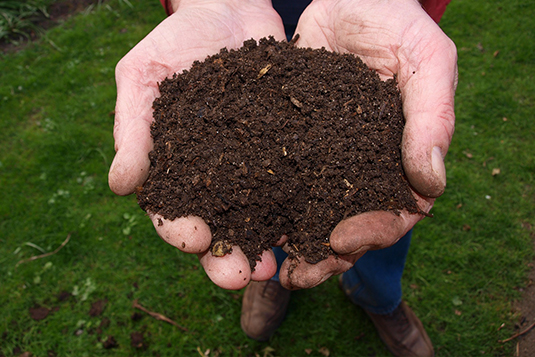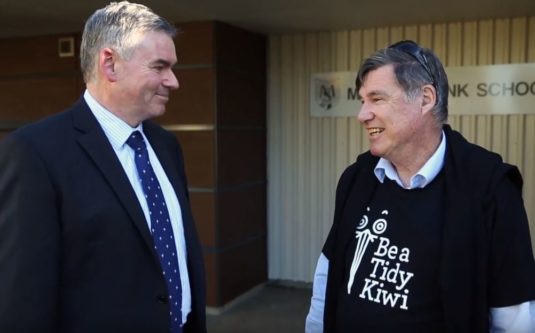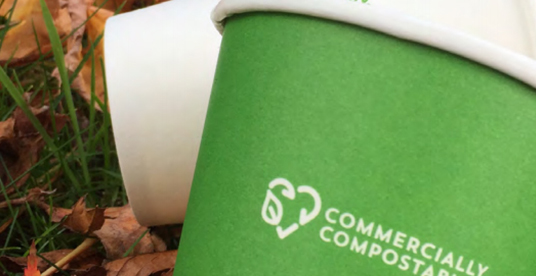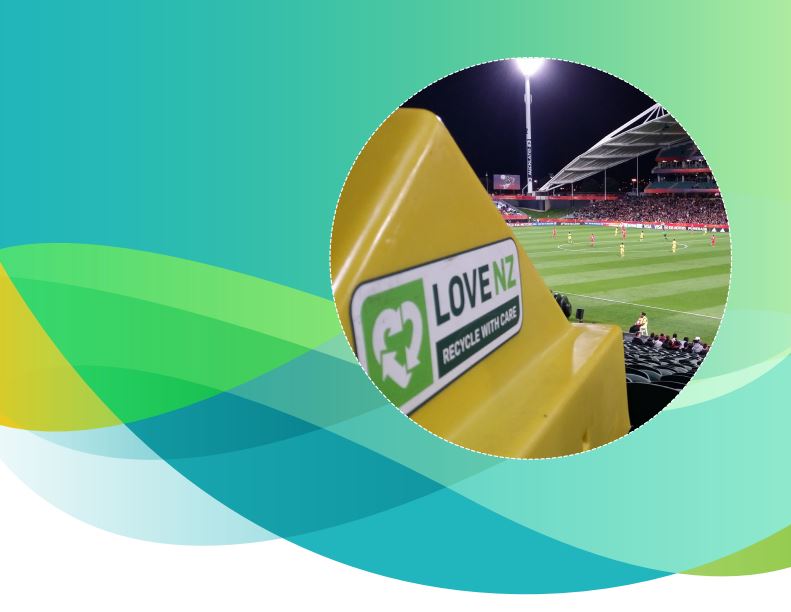Funding application for 2022 – 2023 are now open Apply Now
Member Portal
Not a member? Join us here
Smart recycling and rubbish bins are being introduced in Gisborne as part of a national campaign to reduce litter.
4 December 2019
The Let’s Put Litter in its Place campaign has seen more than 150 sets of bins installed in 17 regions around the country, including seven sets in Gisborne’s town and rural locations.
The Packaging Forum Litter Project Manager Lyn Mayes said Gisborne is well deserving of these Smart EYEFI bins.
IN THE MEDIA: Going tech to improve rubbish habits
“The Smart technology and features to reduce contamination that are being delivered to Gisborne, manage overflowing bins and improve ease of use and identification and each set has bins for recycling, glass and rubbish,” says Mayes.
“We trialled these bins around the country and found that they not only reduced contamination levels but our audits of the pilot bins also showed an improvement in overall behaviour. 81% of items disposed of in the yellow recycling bins and 99% of items in the blue glass bins were correctly placed. This is a fabulous result.”
Each recycling and rubbish bin has an EYEFI unit which provides an alert when bins are nearing capacity, and they’re emptied as required rather than on a schedule. As well as smart technology, the bins have been designed to make their purpose clearer for users.
Be a Tidy Kiwi Program Manager Richard Leckinger is excited to see the bins heading to the East Coast.
“One of the aspects of these new advanced bins heading to Gisborne is not only that they provide the nationally agreed colours for recycling and waste but they all have signage in te reo Māori and English,” Leckinger said.
“Almost 80% of people have said that the colours and signage make the bins easier to use and over the past three years, we have counted litter and monitored the impact of the new bins so we are seeing a measurable decrease in litter.”
In a National Litter Field Count conducted in May 2018 by Waste Not Consulting, an average of 19.5 items of litter per 1000m2 was counted in Gisborne, compared to the national average of 30.5 items.
Mayor Rehette Stoltz says while Gisborne has a better than average litter record, there’s always room for improvement.
“It’s great to see smart technology being used to reduce litter. We will be monitoring the data and utilising the routing technology to minimise servicing costs. I support the ‘Let’s Put Litter in its Place’ campaign and I’m pledging to Be a Tidy Kiwi and Put Litter in its Place. I’d like to see other kiwis doing the same,” said Mayor Rehette.
The campaign to take more colour coded bins into the regions has been developed by The Packaging Forum which promotes recycling under the Government’s Love NZ brand and The Auckland Litter Prevention Steering Group which manages the Be a Tidy Kiwi brand. The campaign is also supported by many councils around the country, the New Zealand Transport Agency and KiwiRail.
The installation of these bins follows the successful implementation of the technology over the past three years around the country. The campaign has also been supported by the Government, the Prime Minister and a number of celebrities (www.bandtogether.co.nz).
The $2.4 million project has received $1.72 million funding from The Government’s Waste Minimisation Fund with a national advertising and consumer awareness campaign “Let’s put litter in its place – it’s just how we do things around here,” supporting this investment in infrastructure.
Find out the latest news from The Packaging Forum
November 2019
The shift to products which are described as degradable, biodegradable and/or compostable has increased as companies seek alternatives to plastic.
25 June 2018

However New Zealand does not yet have a standard for compostable packaging nor does the current infrastructure take most of these products in the volumes presented which means they will mostly end up in a landfill.
Lyn Mayes, Manager of The Public Place Recycling Scheme, is concerned that not enough people realise that there is limited infrastructure for accepting compostable packaging in New Zealand at present.
“We need to be clear that as of this moment and for the immediate future New Zealand has not got a national composting infrastructure for packaging.
Compostable bags and packaging should not be put into kerbside composting bins (unless local arrangements exist) nor should they be put into the Soft Plastic Recycling Bins which the Packaging Forum operates at supermarkets and other retailers,” says Mayes.
“Compostable containers are no different from plastic containers if they are litter and pollute our oceans. They aren’t recyclable and can only be composted where special collection arrangements are in place. There are however, some amazing companies who are working hard to find solutions to this problem in New Zealand.”
In 2017 The Packaging Forum commissioned waste consultancy Beyond the Bin to identify the barriers for compost facilities in accepting compostable packaging and to determine the availability of facilities.
11 facilities said that they were able to take compostable packaging where they had approved a supplier/product range and where collection systems were in place.
Following this research, The Packaging Forum established an independent technical working group (Compostable Packaging Standard Adoption Working Group (CPSA-WG)) comprising composters, manufacturers, waste industry, central and local government and research institutions to assess existing international standards and to recommend a NZ standard.
Kim Renshaw from Beyond the Bin acts as an independent facilitator of the working group and was pleased to have specialists assess the situation.
“It’s fantastic to have technical experts work towards a solution. There is a lot of confusion because we don’t currently have a standard but if we can find a way through, it will really make a difference for composters, packaging companies and consumers,” said Renshaw.
“The rapid increase and variation in compostable packaging means we need a standard that covers all types of compostable packaging which are connected to food or agriculture nutrients.”
The CPSA-WG will identify whether the NZ composting industry and other stakeholder requirements can be met by one of the existing international standards such as the well-known European EN13432 standard or the Australian AS4736 standard.
This involves comprehensive research and collation of requirements and a technical analysis of the existing international standards. Any recommendation will be followed by consultation and stakeholder engagement with the desired outcome to have a proposal in place by the end of the year.
Lyn Mayes also says, “Having composters, manufacturers, waste experts and scientists around the table is critical to verify whether the products coming into New Zealand can be composted in our facilities.”
“We are primarily looking at commercial composting solutions however, home composting is another challenge entirely with the diversity of home composting systems already available in some places.”
If a standard is to be adopted, it would enable identification of compostable packaging that meets clear guidelines agreed with by the NZ composting industry. Industry and government would then be able to assess development of collection systems and investment into comprehensive infrastructure to process compostable packaging.
Find out the latest news from The Packaging Forum
March 2018
Find out the latest news from The Packaging Forum
December 2017
The Packaging Word is official publication of the Packaging Forum.
7 September 2017
This Spring issue:
• Editorial from Alistair Sayers, Chair The Packaging Forum
• Hot of the Press latest news
• Perpectives from Stuart Nash, Spokesperson, Economic Development, Labour
• Projects & initiatives
• Investment in Infrastructure
The ‘Be A Tidy Kiwi’ brand is being brought back to life to bring a whole new generation of Kiwis into the programme.
26 June 2017

We hope to encourage children to be responsible with their rubbish and be… ‘tidy Kiwis’.
A ‘Be a Tidy Kiwi’ rubbish bin will stand beside a Love NZ recycling bin so the public will have options about how to dispose of their rubbish. Wifi technology on the bins will tell the collector when the bins need to be emptied.
Youtube video.
New study recommends clear identification of coffee cups, product innovation and investment in compost facilities.
19 June 2017

The Packaging Forum has released the findings of a detailed survey by specialist consultancy Beyond the Bin of 27 composting facilities across New Zealand to understand their experiences with processing compostable food packaging including compostable coffee cups.
11 facilities have agreed to be listed as accepting compostable food packaging with a further two unnamed facilities able to do so.
7 facilities are piloting processing systems or developing the capability to accept compostable cups and other compostable packaging waste.
Coverage varies with North Island facilities identified in Auckland, Waikato, Bay of Plenty, New Plymouth, Hawkes Bay and Wellington and South Island facilities in Tasman and Kaikoura. Lyn Mayes, Manager of the Packaging Forum’s Public Place Recycling Scheme which commissioned the research said: “Around 295 million hot and cold cups are consumed annually in New Zealand with over 90% of coffee cup brands are either manufactured or sold by our members.
“The industry has seen a significant growth in the volume of compostable cups and with this confusion as to whether, where and how they can be composted. “We commissioned Beyond the Bin to assess the range of cups on the market; survey facilities about whether they can process compostable cups; identify the barriers and make recommendations as to how these can be resolved.Based on the information supplied by our members, the compostable coffee cups in the New Zealand market have similar specifications and are typically certified to the EN13432 (Commercial compost European standard).”
Kim Renshaw, Director Beyond the Bin said: “The composting industry has some will and/ or capacity to process food packaging including coffee cups and in most cases, their C-PLA lids. The barriers they face to process compostable food packaging in their existing operations are varied and significant. Contamination, lack of identification, length of processing time, volume vs weight and organic input restrictions affect a composter’s will and capacity.”
“The Packaging Forum with its members can help solve these issues by creating an identification and standard for cups and innovating product design to reduce the length of processing time. Contamination, volume vs weight and organic input restrictions are process/ regulation related which require a combined effort from waste producers, service providers, regulatory bodies and packaging companies.”
“Many composting facilities have special relationships with credible waste producers, those who contaminate their waste and provide a clean waste stream which means a facility might take compostable food packaging from one customer, service provider or event who agree to use composter approved packaging and are employing decontamination techniques.”
Mayes said that the study provides a pathway: “We have already initiated a change to our funding criteria for events this year requiring applicants to provide evidence they willseparatepackaging waste either during the event or through post event sortation. Our members are working with community composting service providers such as Home Grown Waiheke Trust to provide local solutions and we see an opportunity to support standalone compost units as an option for small scale local solutions.
And it is particularly exciting that product innovation is taking place with members looking at the development of new products capable of home composting.”
“Work is underway to develop an agreed identification system for coffee cups which will clearly identify them as compostable or recyclable where facilities exist and a process for its use. We have started discussion with the Waste Management Institute New Zealand (WasteMINZ) about an identification standard to ensure consistency and increase the likelihood of acceptance.”
Paul Evans, Chief Executive of WasteMINZ said “We commend industry for undertaking this research. For any solution to be effective in the long term there needs to be real collaboration between packaging manufacturers and the composting industry, recognising the potential impacts on compost products.
We look forward to working positively with the Packaging Forum to determine an appropriate composting standard and identification system, which meets the needs of all parties”.
Love NZ and Be a Tidy Kiwi have today launched a joint campaign to encourage New Zealanders to “Litter Less Recycle More.” The campaign has been developed by The Packaging Forum in partnership with The Auckland Litter Prevention Steering Group which manages the Be a Tidy Kiwi brand and is supported by many councils around the country and the New Zealand Transport Agency and KiwiRail.
8 June 2017
The campaign is the first national and community awareness programme about litter since the 1980s, and will be linked to a national behavioural change programme and investment in new and upgraded rubbish/recycling infrastructure that uses smart technology to minimise overflow and reduce collection costs.
The first National Litter Survey which was commissioned by The Packaging Forum in 2015 found 32 items of litter per 1000m2 on New Zealand‟s streets and public places. A three year campaign will target this litter through behavioural change programmes and the installation of correctly situated and visually impactful rubbish and recycling infrastructure.
The campaign was announced by the Hon Scott Simpson, Associate Minister for the
Environment with students and parents at Meadowbank, Primary School in Auckland. The school was chosen to host the campaign launch as the first primary school in New Zealand to have successfully reflected „Beyond Green Gold,‟ indicating its progress as a sustainable Enviroschool.
Richard Leckinger, Program Manager for Be a Tidy Kiwi says “There has been no national campaign about litter since the 1980s, which is at odds with New Zealand‟s attitude towards protecting our country‟s environment and natural beauty. This campaign aims to position litter and resource recovery as an issue of national importance, and the collective responsibility of all Kiwis and those visiting from overseas. We are very pleased to be bringing together two of New Zealand‟s iconic brands, Love NZ and Be a Tidy Kiwi to kickstart awareness and the motivation to make a change.
Launching at a leading Enviroschool is a key part of our strategy in which we develop age specific materials and messages for schools which we will pilot through Enviroschools and other educational organizations such as Tread Lightly Caravan.”
Lyn Mayes, Manager at The Packaging Forum, says “In May 2015, we published the first National Litter Survey, conducted by Waste Not Consulting as the first step to establishing a national Litter Index. This survey found that around 60% of visible litter is packaging and shows the impact of the increase in food consumption away from home.
Our membership includes around 70% of the 100 most often littered brands and they are keen to work with us to promote the “Litter Less Recycle More” campaign to their customers. Together we want to “put litter in its place”.
Mayes added, “Clean, well-maintained infrastructure is crucial to helping the community dispose of their waste correctly, enabling them to recycle where possible. We will choose pilot sites around the country to introduce new Smart technology “binfrastructure” in conjunction with the advertising and behavioural change programme.”
The $2.4 million project has received $1.72 million funding from The Government‟s Waste Minimisation Fund and will be supported by in kind investment by industry and local government in delivering a national advertising campaign which will be developed by Brand World.
Public Palace Recycling voluntary product stewardship scheme 31 March 2016.
27 March 2017

The annual report provides the following data:
• Reports on the performance against Scheme KPIs to end 2015.
• Financial period 1st April 2015 to 31st March 2016 (financial year for the scheme)
The scope of the Packaging Forum’s Public Place Recycling voluntary product stewardship Scheme includes the end of life collection of packaging (and where applicable food waste) away from home. The scheme includes the funding of projects, infrastructure and educational programmes to increase the recovery and recycling of plastic, aluminium, paper and glass packaging from food and beverages consumed in public places.
The Scheme raises and allocates funds to promote and directly influence the recycling of plastic, paper, aluminium and glass containers and organic waste in public places.
Public places include street locations, transport hubs, tourism and hospitality venues, shopping malls, stadia, canteens and other venues managed by commercial entities.
The Scheme also provides annual data on the amount of packaging and organic waste collected for recycling through the public place recycling bins operated by councils.
Scheme members include companies that manufacture products or their packaging that are typically consumed away from home such as beverages and snack foods. The Scheme also includes venues where these products are consumed.
The Scheme is funded by brand owners, packaging manufacturers and recyclers working with event organisers, councils and other organisations.
This Public Place Recycling Scheme is separate from the Packaging Forum’s Glass Packaging Product Stewardship Scheme however incorporates a financial contribution from the Glass Scheme which contributes to the collection of glass packaging from public places.
In the report year the public place recycling bins which have been introduced at supermarkets and retailers in Auckland to collect soft plastic packaging have been included.